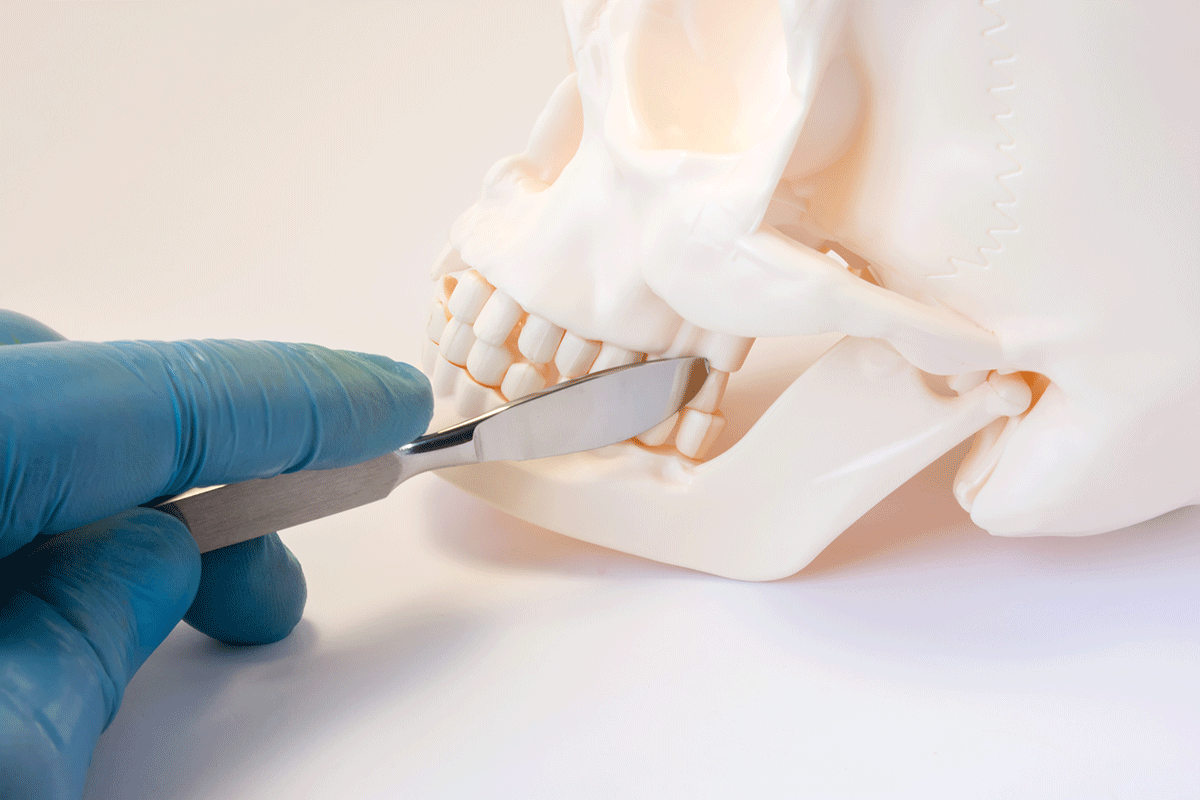Nearly half of adults in America have some form of gum disease by the time they turn 30. In its early stages, gum disease is called gingivitis, and can often be reversed. However, as the disease progresses (periodontal disease) the condition cannot be cured but can be successfully managed by an experienced periodontist. Here is what to know about how periodontists treat gum disease.
How Did I Get Gum Disease?
Many people are surprised to receive a diagnosis of gum disease since gum disease often does not cause any symptoms. As the infection worsens, however, symptoms such as bleeding gums, swollen gums, tooth pain, loose teeth, and bad breath begin to emerge.
Although plaque and tartar due to poor oral hygiene habits are a leading cause of gum disease, it is not the only reason people develop gum disease. Smoking increases your risk of gum disease significantly. Autoimmune diseases, a family history of gum disease, changes in hormones (pregnancy), malnutrition, poor-fitting dental restorations (bridges or dentures), and poorly controlled diabetes are all known risk factors for developing gum disease.
Periodontal Treatment for Gum Disease
If you’ve been diagnosed with gum disease, you are likely to be referred to a periodontist for treatment. Treatment often begins with a procedure called scaling and root planing (deep cleaning). During scaling and root planing, the plaque and tartar that has accumulated around the teeth, and below the gum line will be scraped off.
Many patients will require periodontal regeneration surgery (gum surgery). This entails a routine surgical procedure in which your gum tissue is reflected from your teeth to allow full access for removal of all bacteria and infected gum tissue.
Bone grafts can sometimes be placed to grow back some of the lost bone around the teeth.
Patients with gum disease should be on a periodontal maintenance program. This involves cleanings every three months to remove bacteria and tartar that cannot be removed with regular brushing and flossing alone.
What Happens if I Don’t Treat Gum Disease?
Gum disease is a chronic, progressive condition. Without treatment, patients can expect a host of unhealthy outcomes. Untreated gum disease may result in tooth loss, pain, infection, and bone loss, and can pose significant risks to your overall health. A periodontal abscess may form, which can be painful and spread into dangerous areas of the face.
Periodontal disease is also linked with a variety of serious health conditions including heart disease, stroke, worsened diabetes, pregnancy complications, Alzheimer’s and other neurodegenerative conditions. If you’re diagnosed with gum disease, it is crucial that you schedule an appointment with a periodontist sooner rather than later, to begin restoring your oral health and protecting your overall health.
Frequently Asked Questions
Will I be awake during scaling and root planing?
Yes. You will receive a local anesthetic to ensure that your teeth and gums are numb. Patients who suffer from dental phobias or anxiety should inquire about relaxation with sedation to receive the vital periodontal disease treatment they need.
How often do I need cleanings if I’m on periodontal maintenance?
Patients generally alternate between seeing their periodontist and their primary care dentist every three months for periodontal maintenance.
Non-Surgical Treatment for Gum Disease in Belmont, MA
Schrott Perio Implants treat all stages of gum disease at our state-of-the-art practice in Belmont, MA. As an award-winning periodontal practice serving Belmont, Cambridge, and greater Boston, we provide comprehensive periodontal care to patients of all ages. Call 617-484-9240 or send us a message to schedule an appointment.

